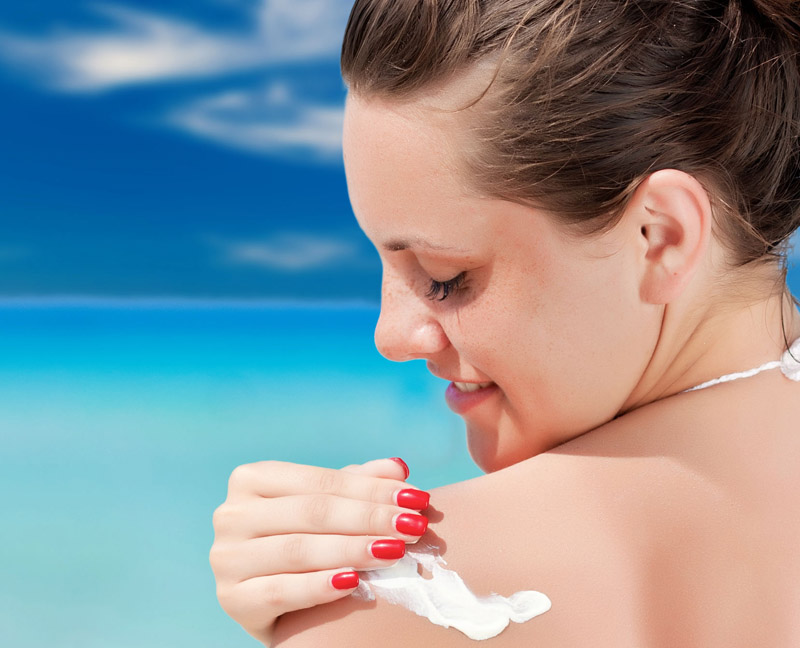Sunburn SOS: Unleashing the Power of Prevention and Healing

Dr. John Kulin of Shore Urgent Care Shares Tips to Safeguard Your Skin from Scorching Sunburns
Basking in the warm rays of the sun can be a blissful experience, but without the right protection, it can quickly turn into something quite unpleasant. Sunburn is not only painful but it can also lead to long-term skin damage and increase your risk of skin cancer. To help you navigate the sunny days with confidence, Dr. John Kulin of Shore Urgent Care shares essential information to help you enjoy the sun safely. So, grab your sunglasses and SPF, and let’s dive into the world of sun protection!
Sunscreen Types: Finding the Right Shield
When it comes to choosing a sunscreen, there are several options to consider, but which type is right for you?
- Chemical Sunscreens: These sunscreens contain chemicals that are absorbed into the skin and absorb UV rays, blocking them from damaging the skin. They typically contain active ingredients like avobenzone, oxybenzone, or octinoxate.
- Mineral Sunscreens: These products work by forming a physical barrier on your skin, rather than being absorbed. They reflect and scatter UV rays. Look for ingredients like zinc oxide or titanium dioxide. While in the past they’ve appeared thick and white on the skin, there are now options that are clear when applied.
- Hybrid Sunscreens: As the name suggests, these sunscreens combine chemical and physical blockers to provide broad-spectrum protection.
Choosing the Right SPF
Sun Protection Factor (SPF) is a measure of how well a sunscreen protects against UVB rays, which are the primary cause of sunburn. The SPF number indicates the duration of protection compared to not wearing sunscreen.
For everyday activities and minimal sun exposure, a sunscreen with SPF 30 is generally recommended. However, if you’re planning to spend extended periods outdoors or participate in activities with intense sun exposure, opting for SPF 50 or higher will provide added protection. Additionally, if it is at the start of the summer season or you have fair skin, an SPF of 50-65 is recommended.
Tanning Doesn’t Mean Skipping Sunscreen
Contrary to popular belief, tanning does not grant immunity from the damaging effects of the sun. Even if you tan easily or already have a golden glow, sunscreen remains a crucial part of your skincare routine. While it may take longer for tanned skin to burn, it is still susceptible to harmful UV radiation that can lead to premature aging and an increased risk of skin cancer.
Sensitive Skin, Children, and Babies
Individuals with sensitive skin require extra care when choosing sunscreen. Look for products labeled “hypoallergenic” or “designed for sensitive skin.” Physical sunscreens with zinc oxide or titanium dioxide are often better tolerated by sensitive skin types.
For children and babies, it’s crucial to use sunscreen formulated specifically for their delicate skin. Opt for mineral-based sunscreens with a high SPF, and consider additional protection like broad-brimmed hats, sunglasses, and lightweight clothing that covers their arms and legs.
The Importance of Reapplication
Applying sunscreen once in the morning isn’t sufficient for a full day of protection. Sunscreen should be reapplied at least every two hours, or more frequently if you’re sweating heavily or swimming. Even water-resistant or waterproof sunscreens can lose their efficacy over time, so be diligent with reapplication.
Cloudy Days and Sunscreen
Cloudy skies might give the illusion of safety from the sun’s harmful rays, but don’t be fooled! UV radiation can penetrate clouds, leading to sunburn. Make applying sunscreen a part of your daily routine, regardless of the weather.
Clothing as an Extra Barrier
Clothing can offer additional protection against the sun. Look for garments labeled with an ultraviolet protection factor (UPF) rating of 50 to 75. The higher the UPF, the more effective the clothing is at blocking UV rays. Wearing wide-brimmed hats, sunglasses, and long-sleeved shirts can provide further coverage.
Take Extra Care on Open Water
Do you enjoy being on a boat, surfing or paddleboarding? If so, be mindful that the sun reflects off of the water and can cause sunburn in some unsuspecting places, such as on the underside of your nose, under your chin and even on the roof of your mouth when your mouth is open.
Treating Sunburn at Home
Despite our best efforts, sunburn can still happen. If you find yourself with rosy, painful skin, here are some tips to ease the discomfort:
- Cool Compresses: Apply cool, damp cloths or take cool baths to soothe the burn.
- Moisturize: Apply a gentle, fragrance-free moisturizer or aloe vera gel to keep your skin hydrated.
- Over-the-counter Pain Relievers: Nonsteroidal anti-inflammatory drugs (NSAIDs), like ibuprofen, can help reduce pain and inflammation. You can also try the over-the-counter steroid hydrocortisone cream, but use it sparingly and not on your face.
- Do Not Pop Sun Blisters: If you start to develop sun blisters – the small, fluid-filled blisters that can occur with a sunburn – do not pop them. Blisters form to help the skin heal, but if you pop them it can lead to infection.
When to Seek Urgent Care
While most sunburns can be treated at home, severe cases may require medical attention. Seek urgent care if you experience the following:
- Severe blistering over a large area of your body.
- Intense pain or high fever.
- Signs of infection, such as increasing redness, swelling, or pus.
Remember, prevention is always better than a painful sunburn. Prioritize sun protection by applying sunscreen correctly, seeking shade during peak sun hours, and wearing protective clothing. With these practices in place, you can enjoy the great outdoors while keeping your skin healthy and happy all summer long!
Shore Urgent Care is located at 2605 Shore Road, Northfield, NJ, and is open Monday through Friday, 8am to 8pm, and Saturday and Sunday, 9am to 5pm. We’re located just a short drive from your favorite shore towns. For more information, call 609-365-5333.